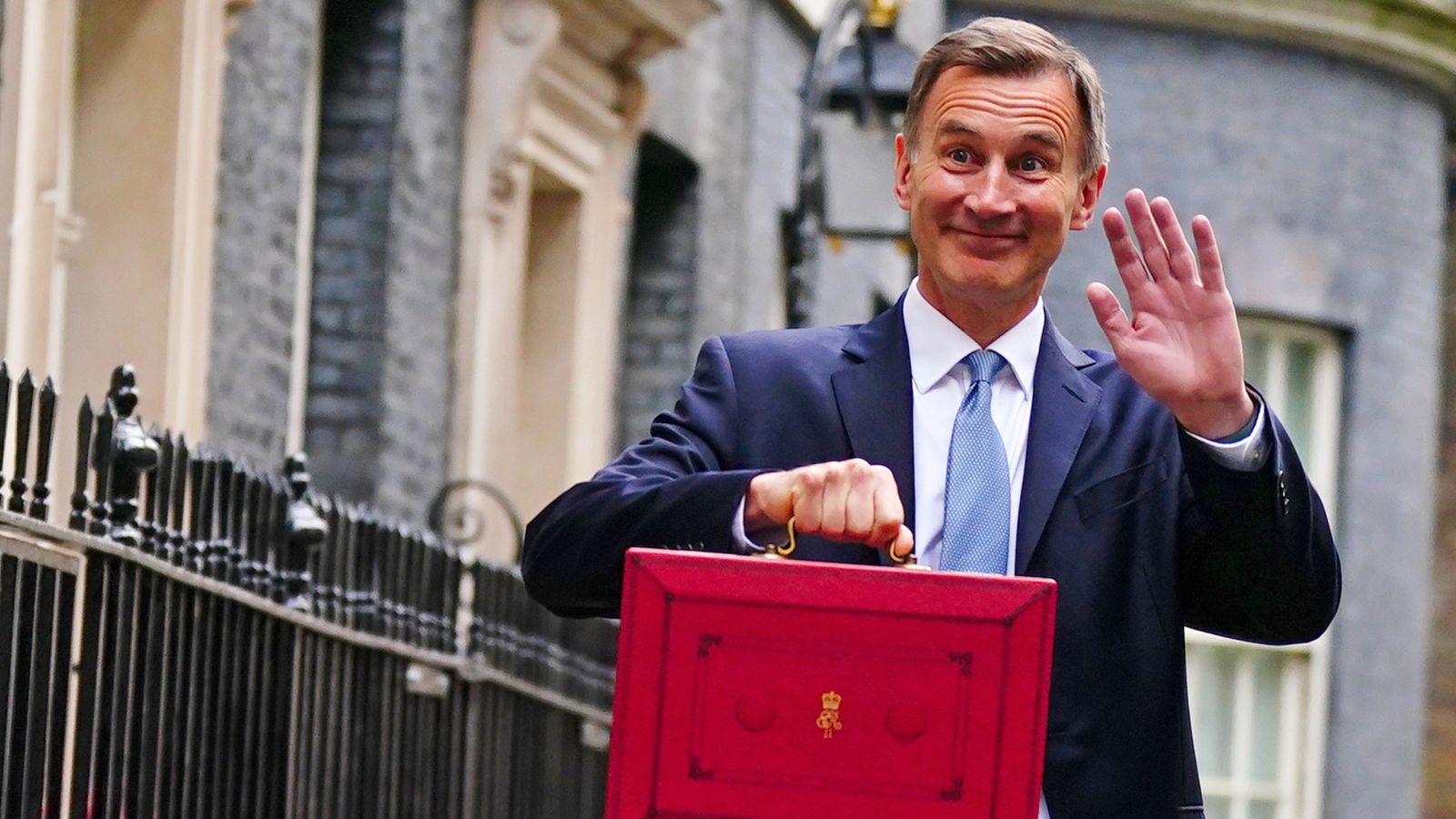Millions of UK public sector workers, including teachers and doctors, will get pay rises of about 6% after Rishi Sunak decided to accept the recommendations of independent pay review bodies.
The bodies had suggested pay rises of between 6% and 6.5% for 2023-24, at a potential cost of £5bn.
Mr Sunak met Jeremy Hunt, the chancellor, to thrash out the decision this morning, which involves around 45% of the public sector, but does not include the majority of civil servants.
The pay increases each public sector will receive are as follows:
- Police – 7%
- NHS – 6%
- Junior doctors – 6%
- Prison officers – 7%
- Armed Forces – 5%
- Teachers – 6.5%
PM speaks after decision on public sector pay rises – follow live
The Treasury has stressed the pay rises will be funded through existing departmental budgets, prompting fears from unions of fewer resources for those working in the public sector and potential cuts to services.
Ministers are due to give updates on the NHS, police, teachers, the armed forces and the justice system today.
Within the NHS, the decision affects nurses, porters, cleaners, paramedics, physiotherapists, 999 call handlers, midwives, security guards and junior doctors.
The general secretaries of four education unions described the 6.5% pay rise as “the largest ever recommendation” from the School Teachers’ Review Body (STRB) and said they would recommend to their members that they accept it.
“A 6.5% increase for teachers and school leaders recognises the vital role that teachers play in our country and ensures that teaching will continue to be an attractive profession,” they said.
“The government has accepted the STRB’s recommendation and has agreed to bring forward wider reforms to reduce teacher and leader workload in partnership with all four unions.”
They added: “Importantly, the government’s offer is properly funded for schools.
“The government has committed that all schools will receive additional funding above what was proposed in March – building on the additional £2bn given to schools in the Autumn Statement.
“The government will also provide a hardship fund of up to £40m to support those schools facing the greatest financial challenges.
“This deal will allow teachers and school leaders to call off strike action and resume normal relations with government.”
Giving a press conference shortly after the offers were unveiled, the prime minister said they were “final” and “one of the most significant” pay awards in decades – costing “billions of pounds more than the government had budgeted for”.
“I’m not prepared to put up people’s taxes and I don’t think it would be responsible to borrow more,” he added.
He confirmed the pay awards were not going to be funded by increased borrowing but through other avenues, including by increasing the charges migrants have to pay when they apply for visas and by raising the immigration health surcharge, the levy migrants have to pay to access the NHS.
Mr Sunak said the move would raise over £1bn.
The decision comes as junior doctors kick off the longest strike in NHS history, with young medics walking out from 7am today and returning on Tuesday.
Members of the British Medical Association (BMA) want their pay to be raised by about 35% – a figure Health Secretary Steve Barclay has described as “not fair or reasonable”.
Over the weekend there had been reports of a cabinet split over public sector pay, with The Times reporting that five cabinet ministers had been urging the prime minister to accept the recommendations of the independent pay review bodies in an bid to put an end to a damaging series of strikes.
However, the prime minister had previously warned he would be prepared to ignore the recommendations, saying workers “need to recognise the economic context we are in” amid fears that pay rises could fuel inflation.
If Mr Sunak approves the plans, each department will publish the independent review body reports and endorse their recommendations.
These rises could potentially halt further strike action if union members decide to accept them.
The highest award is expected to be handed to police – of around 7% – while doctors, dentists, prison staff, the armed forces and senior public officials are also up for a rise.





